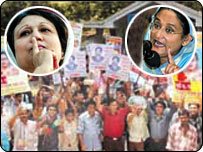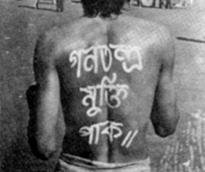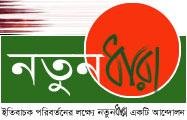Need Separate Laws For the Political Parties
Written & Posted by: Feroz M. Hassan founding member of Bikolpo Dhara Bangladesh. He is ex-Secretary General of FEMA.
It’s now time to have a formal legal framework for establishing Political Parties as legal entities. This law should define the rights and privileges of the political parties. In a representative democracy well-organized and accountable political parties are essential.
Introduction:
Political parties galvanise and organize the participation of citizens in the political life of a country and the multiparty system presently is undoubtedly one of the major pillars of contemporary democracy. Within this context, it becomes necessary to define the rules that govern the activities of political parties so as to ensure their proper functioning in the country.
Political Party; Party system
A political party generally refers to an organization that organizes citizens and mobilizes voters on behalf of common set of interest or ideologies. Parties play an important role in political life by setting public policy agendas, nominating candidates for public office and even monitoring the work of the elected representatives.
In western democracies, political parties emerged at the end of an extended process, growing out of craft guilds, professional associations, local government and various interest groups. In developing countries, parties generally have grown around a particular leader or leaders or as the outgrowth of a civic movement to change the governing system.
In our country political parties first came into being during the British colonial period. In course of time it was under the banner of parties the autonomy and independence movement were organized. In the post independence period with the establishment of multi-party framework a process of positive political development was initiated marking a significant departure from the dysfunctional party system in erstwhile Pakistan. But unfortunately the process was thwarted by introduction of one party system and subsequent intervention in civil politics.
Political Party law:
Interestingly, political parties are not mentioned in the constitution, a constitution which defines in details the role of every area of the Government. The Constitution includes no language, for example, identifying Bangladesh as a multi-party state. Nor is there any legal guidance as to the formation of political parties or their status as legal entities for financial, contractual or other legal purposes.
However, the election process in Bangladesh is highly party driven, with recent history demonstrating characteristics of a two-party system. Over the last 15 years, three competitive were held. On scrutiny of the candidates that ran for election, it is observed that the overwhelming majority of the candidates were party nominated leaving only about 1-2% (real) independent candidates.
The political parties play very important role within the political system in the election and parliamentary systems.
Given the role of parties in the Parliament, and their extraordinary influence in the nomination of candidates, the conduct of the campaigns, and the mobilization of voters through demonstrations, and rallies, it is time that the parties fall under some degree of formal accountability within the system. As a matter of principle reflected a common view that parties cannot effectively participate in and promote a democratic system unless they are democratic institutions themselves.
The time has now come for an overall comprehensive set of laws to define the precise role and status of parties in the political system.
The proposed political parties laws should not serve to inhibit the constitutional guarantees regarding freedom of association; nor should they promote the intrusion of the state into the internal organization or affairs of the political party.
Efforts are under way for reforms. Reforms of the election laws, rules and also the procedures related to election. With my experience over the years, I suggest that we make a separate law for registration of political parties. This is more appropriate, than just to amend the Peoples Representation Order making it compulsory for party to register. Mere amending the RPO just for election will be inadequate and will not provide the rights & privileges of the political parties. The proposed laws should be able to clearly distinguish the rights of the parties as well as the responsibilities.
It is appropriate that political parties are registered with the election commission under the proposed political party laws which will also clearly describe the requirements & procedures for registration. Political party laws should include the issue of the internal party organization, which must confirm to the democratic rules besides policy making process through holding of national convention or party congress to ensure participation and representation of constituencies up to grassroots members. The proposed laws should also address various other issues such as transparency in the process of its operation and specially electing the leaders, accountability specially of funds and its sources.
Another major issue is about the process of nominating candidates for various elections.
The success of representative democracy largely depends on the effective party system. The parties help hold the political system together and keep it working. It is primarily the task of the political parties to participate in political will formation by the people and as such they put forward candidates for political office and organize election campaigns.









1 comment:
No need of symbols in the ballot paper. In the next elections the need for having symbol in the ballot paper is not justified as voter ID cards and list will be with photographs, the ballot papers should also have photo and name of candidate. This will ensure that the candidate who actually has popular support gets nominated. This will also curb to some extent the nomination business and the influence of money in the elections.
Eddie Anwar, Gulshan
Post a Comment